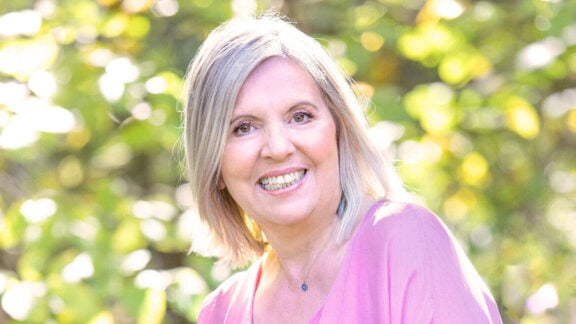Last week Prime Minister elect, Tony Abbott, announced his new cabinet. Of the 19 member cabinet, only one female – Julie Bishop – was elected. With this, the PM announced he would not include a minister for the Status of Women. And then last Thursday Mr Abbott announced he would be responsible for women’s policies and programs, with the assistance of West Australian Senator Michaelia Cash, as minister assisting.
But as we watched his election campaign filled with seemingly politically incorrect gaffes about women, as many claimed, is Mr Abbott really the best person to take on women’s issues?
“Those gaffes I believe were purposeful,” says Helen Marcou, co-founder of SLAM (Save Live Australia’s Music).
“I think he was setting an agenda and he was very calculated.”
Ms Marcou adds that he’s sending a “clear message to Australian women and the population” that the Coalition will do what they want and we Australians will just have to “suck it up”.
“They are taking non-PC to the extreme and we are so shell-shocked that people will be willing to accept anything from here on in,” Ms Marcou tells Neos Kosmos.
Councillor for Whittlesea Kris Pavlidis believes the decision to elect Mr Abbott as PM reflects Australia’s “very conservative community”.
Ms Pavlidis was volunteering at a polling booth the day of the 2013 Australian Federal Election and says she was stunned to hear young ladies say they loved Tony Abbott. Curious as to why, Ms Pavlidis asked one young girl what it was about Mr Abbott that she ‘loved’. The young lady responded: “He represents the average Aussie bloke.”
“What I took away from that was that we [Australians] are – unfortunately – a very conservative community,” she tells Neos Kosmos.
“It’s been tested out with a range of different views, like equality in marriage, refugee issues – with the slogan ‘stop the boats’.”
Not only was the Status of Women excluded from Mr Abbott’s new ministry, so were the following: multiculturalism; science; aged care; disabilities; climate change; higher education; youth; early childhood; workplace relations; mental health and water. The ministries the PM decided to include are: border security; Anzac Day and sport.
“The newly appointed Cabinet is a very public example of enacting the boys club attitude, and does nothing but give organisations and businesses the permission to do the same,” says Penny Kyprianou, manager, arts and culture program, Antipodes Festival.
“Tony Abbott’s choice in ministries is a pretty good insight into his brand of conservatism, and the inclusion of only one woman speaks volumes,” adds Ms Kyprianou.
Comedian, writer and social commentator Terri Psiakis says leaving out the ministry on the Status of Women shows that female issues are “clearly not a concern” to Mr Abbott.
“His slashing and burning of ministries that represent the concerns of some of the most vulnerable, marginalised and disadvantaged people in our country is an absolute disgrace and indicative of what I believe is a very uncaring government unconcerned with social justice, and a PM who lacks compassion on both a personal and professional level,” she adds.
Ms Kyprianou says the fact that Australia voted in Mr Abbott as Prime Minister – with his conservative views – concerns her more than Mr Abbott himself.
“That he spoke in a voice that resonated with so many Australians doesn’t sit well with me at all,” she says.
“I heard many people explain their decision to vote for Mr Abbott by using phrases like ‘to increase border security’ and ‘to stop the boats’. Mr Abbott identified a common fear, and ran with it.”
As a Greek Australian woman, safety to Ms Kyprianou means being safe at work, walking at night, catching public transport, not to be protected from asylum seekers, adding this “hysteria of a national emergency is ludicrous”.
Apart from these issues, executive director of AGWS, Ms Voula Messimeri Kianidis AM, believes not having a female voice and representation on a Federal Government level means not having women in policy making decisions that will invariably impact on the whole community of Australia.
“There are women in Australia who have extraordinary experience and merit – not only in government but across the board – so there are plenty of women to choose from that can occupy decision making positions,” Ms Messimeri Kianidis tells Neos Kosmos.
“Women have a particular approach to the way they relate to the community and this will impact on Australia and we will be poorer as a community for it by not having that perspective.”
As it stands, Ms Messimeri Kianidis believes that there is no diversity in terms of gender in decision making in the Commonwealth.
“It’s important there is a gender balance, a representational balance of people from different walks of life, who reflect different views, represented in Federal Government,” Ms Marcou says, adding that by having everyone’s voice heard, it will show Australia as a “tolerant society”.
“You want to see someone that’s like you in Government; that thinks about you; that represents the things that you believe in; that you feel you can relate to and generally, a lot of white upper class men are totally unrepresentative of the greater population.”
All the women spoken to about the current government’s cabinet believe that this is a backward step for Australia. And given that Australia was moving forward by having its first female Prime Minister, they all believe that women now need to fight for their rights.
“Women of all ages and nationalities in Australia must now fight even harder to be heard,” says Ms Psiakis of the new government.
Ms Marcou – who has a ten-year-old daughter Lola – adds that this current attitude by our Federal Government has “decimated the aspirations of a lot of young women”.
But Ms Marcou makes another point, and that is how Australia is now being perceived on an international level. Ms Marcou – who was in Greece during the election campaign – says many Greeks were looking intently at the outcome of Australia’s Federal election and were concerned with the Coalition coming into power.
“[Greeks] have an idea of Australia as being progressive, educated, wealthy, somewhere they would always think of moving to; a place you go for a better life,” she says of the feedback she was receiving from Greeks.
“And now we have prejudice and misogyny from our prime minister – it sets off alarm bells about the country and what culture we have here.”
Ms Kyprianou echoes these sentiments.
“You only need to look at how international media covered the election campaign to see how the rest of the world views us.
“Tony Abbott’s ‘woman problem’ was picked up extensively internationally and the male heavy cabinet is giving rise to a whole set of new headlines condemning our conservatism.”
She says the message it sends to young Greek Australian women – and the wider Australian female community is clear – “find your voice”.
“When worthy females were demoted in place of poor performing men, there is definitely an issue,” states Ms Kyprianou.
“Given the man they said was too right-wing to be our Prime Minister is now leading this country, we need to be role models for each other, and continue trying to bring the men who subscribe to the boys’ club ideology out from their caves.”
*Neos Kosmos attempted to speak with Greek Australian women who support the Coalition but they declined to comment.
Advertisement
Backlash over Abbott’s ministry
From media, aged care, community relations and the arts; prominent Greek Australian women tell Neos Kosmos what they think of the Federal Government’s take on female issues








